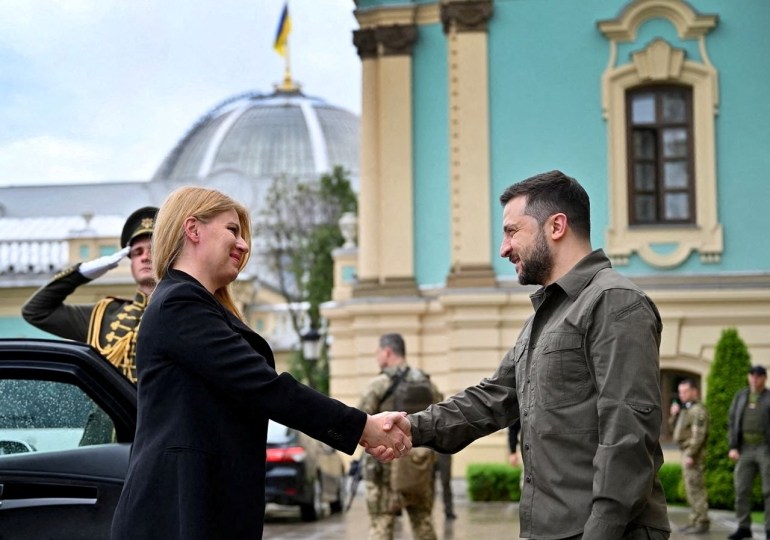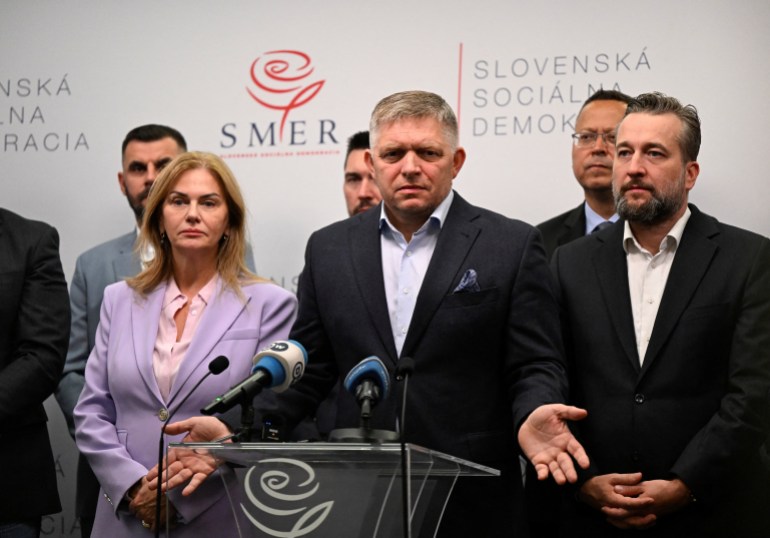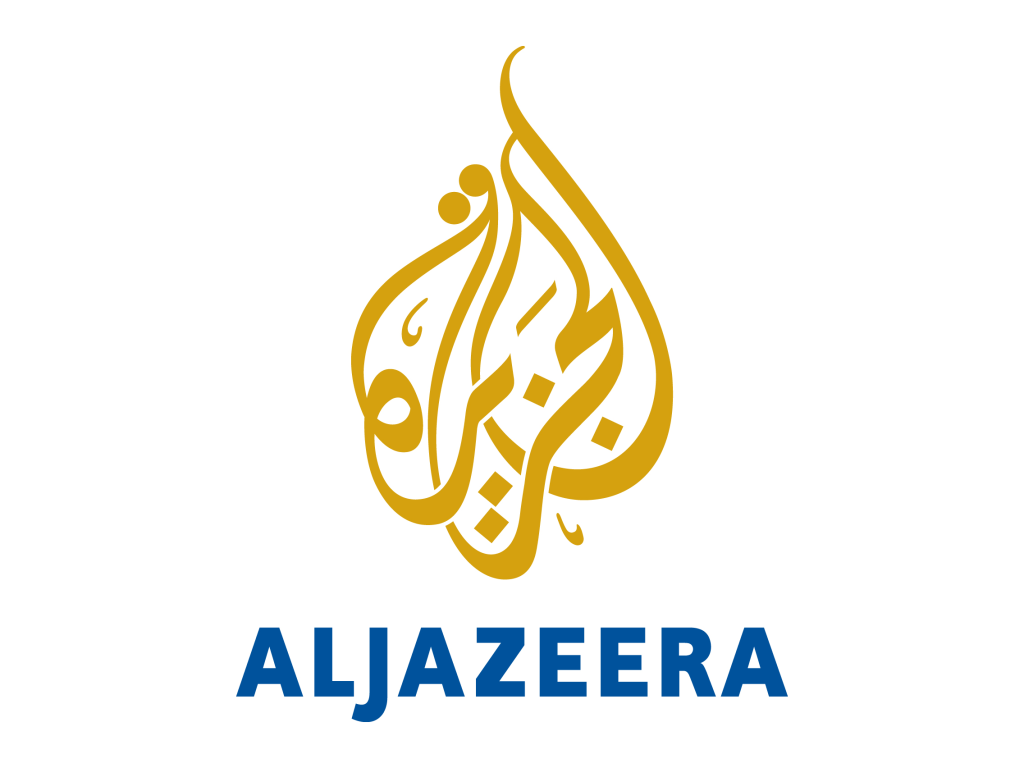ARTICLE AD
This week’s televised debate among Slovakia’s nine presidential candidates often sounded as though it was taking place in Moscow.
“As president, I want to extricate Slovakia from the dungeon of nations that is the European Union,” declared Milan Nahlik, a policeman who unsuccessfully ran for parliament four years ago.
“As president, I would vote for the lifting of sanctions against Russia, because they are contrary to international law,” said Stefan Harabin, a former Supreme Court judge and third most popular candidate, echoing Russian arguments that sanctions needed to be approved by the UN Security Council.
“Mr Harabin, you are directly responsible for the large and forceful manner in which we handed over our national sovereignty to Brussels. And today you act as if you had nothing to do with it,” shot back Marian Kotleba, a neo-Nazi candidate trailing in the polls.
He was referring to Harabin’s erstwhile support for the Lisbon Treaty, which empowered the European Union to sign international treaties on members’ behalf, but fell short of a greater aspiration, to introduce majority voting on defence and foreign affairs, thus preserving member states’ power to veto decisions.
Loss of national sovereignty on external relations was a fear leading candidate and former premier Peter Pellegrini played off as well.
“Pellegrini pulled out a carefully prepared insidious lie and a story about how Germany and France will order that Slovakia must “assemble our fully armed soldiers at the railway station” for deployment to Ukraine and “no one will ask us,” wrote journalist Tomas Bella at the independent newspaper Dennik N.
Pellegrini, who leads the Hlas party, a splinter group of the ruling Smer party of Prime Minister Robert Fico and now in coalition with it, has styled himself as the pro-peace candidate, repeating Pope Francis’s recent controversial statement, “You have to find the courage to raise the white flag.”
In Slovakia, the president’s role is largely ceremonial.
However, as the official commander in chief of the armed forces, the president can declare war and mobilise, declare martial law, and return a law for parliament to reconsider. He or she can also appoint and recall judges including Supreme Court justices, demand reports from the government on specific areas, or call a referendum on a policy issue.
Are any candidates more aligned with Ukraine and its Western allies?
The lone pro-Western voice in the field and the only candidate supporting Ukraine’s fight against Russia’s invasion, was that of former foreign minister Ivan Korcok, who places a close second to Pellegrini in opinion polls.
“Peace in Ukraine can be tomorrow, and it will be when the Kremlin regime headed by President Putin stops killing innocents and destroying the entire country. Peace cannot be capitulation,” Korcok said.
Korcok also agrees with Ukraine that Russia should give back all five regions it has invaded since 2014.
“I do not think Ukraine should give up part of its territory in order to achieve peace,” he recently told the AFP news agency.
How are Slovaks likely to vote?
Despite the crowded field in Russia’s favour, Slovaks seem fairly evenly divided between Korcok and everyone else.
A poll last November suggested 60 percent of respondents would vote for Pellegrini, versus 41 percent for Korcok. But in a January poll, Pellegrini’s lead narrowed to within the margin of error – 40 percent versus 38 percent.
A March 18 poll put them even closer, with Pellegrini leading by just one point, at 35 percent.
“It is unlikely that anyone will gain the more than 50 percent of the valid votes needed to be elected in the first round – something that has never happened in almost 25 years of direct presidential elections,” wrote Michaela Terenzani in The Slovak Spectator.
If she’s right, a run-off vote between the two leading candidates – likely Pellegrini and Korcok – will have to take place on April 6.
Does Slovakia officially support Ukraine?
When Russia launched its full-scale invasion two years ago, Slovakia became an ardent supporter and arms contributor to Ukraine, its eastern neighbour.
Apart from ammunition, it sent self-propelled artillery, an S-300 air defence system, transport helicopters and MiG fighter jets. Slovakia quickly received an additional NATO battle group and Patriot air defences for its own security.
Its liberal president, Zuzana Caputova, was one of the first Western leaders to stand beside Ukrainian President Volodymyr Zelenskyy in Kyiv three months after the invasion.
According to a Eurobarometer poll at the time, 80 percent of Slovaks felt sympathy towards Ukrainians.
 Ukraine’s President Volodymyr Zelenskyy shakes hands with Slovakia’s President Zuzana Caputova in May 2022, after Russia’s full-scale invasion began [File: Ukrainian Presidential Press Service/Handout via Reuters]
Ukraine’s President Volodymyr Zelenskyy shakes hands with Slovakia’s President Zuzana Caputova in May 2022, after Russia’s full-scale invasion began [File: Ukrainian Presidential Press Service/Handout via Reuters]
So how did Slovakia become split down the middle?
“There are so many disinformation channels. There are so many paid agents, propagandists, that Slovakia is contaminated with fake news,” Dennik N journalist and activist Michal Hvorecky told Al Jazeera.
“Most of this fake news is dealing with the Russian war in Ukraine, the situation in the Donbas, Ukrainian democracy, especially with hatred towards the West,” Hvorecky said.
When communism collapsed in Europe, Slovakia rushed headlong into the EU and NATO, along with the rest of its former Soviet neighbours, becoming a member of both organisations in 2004. Russia invaded Ukraine for aspiring to those same choices.
Why would half of Slovaks now deny Ukrainians that choice?
“In 1968 we were occupied by half a million Soviet soldiers. Now, 50 percent of Slovaks will tell you, we are not part of the West, we are not part of the east, we are somewhere in-between,” said Hvorecky.
“We somehow tend to forget that many people feel themselves as losers of transformation. Long after this forgotten past 30-40 years ago, they will tell you there was more stability, there was more security,” he said.
Anti-liberal premier Fico and former justice Harabin belong to that generation of former communists, and the Smer and Hlas parties were largely built from the political talent of the Soviet era.
The younger generation feels quite differently.
A simulated election run in 180 secondary schools across the country this week showed that people too young to vote on Saturday would elect Korcok in the first round with 57 percent of the vote.
Pellegrini and Harabin would get 15 percent and 10 percent, respectively.
In addition to sympathy with the Kremlin’s narrative and a generational hankering for the past, Slovakia suffered economically from Ukraine’s war.
It is one of a handful of landlocked Eastern European states, along with Austria, Hungary and the Czech Republic, which could not easily replace Russian pipeline oil when the EU banned it in December 2022.
Slovakian support for energy sanctions against Russia was among the lowest in the EU.
What’s at stake for Slovakia, and Europe?
Caputova entered politics through environmental activism and campaigned to abolish coal. She supports Ukraine, free media, LGBTQ rights, gender equality and women’s rights to choose abortion.
In almost every respect she has stood for what Fico’s three-party coalition, formed last December, abhors.
Fico stopped all military shipments to Ukraine days after winning October’s parliamentary election.
His environment minister, Tomas Taraba, denies climate change.
His culture and media minister, Martina Simkovicova, owns an online television station that amplifies Russian messaging about Ukraine.
His defence minister, Robert Kalinak, has been indicted along with Fico for allegedly using tax records to run smear campaigns against political rivals. His foreign minister, Juraj Blanar, broke with an EU policy of ostracising Russian foreign minister Sergey Lavrov, and met with him last Saturday.
Observers believe a Korcok victory would at least preserve a liberal voice.
“As a president you don’t have executive power but people can hear you. Your voice can be very strong. You can talk in parliament, you can talk on national television. It’s a very respected position,” said Hvorecky.
That is partly what motivated him to revive protests against Fico in Bratislava last October, and the response has given him hope.
“People all winter long, November, December, all the way to March, were protesting almost every week in the frost, snow, wind, rain, every Thursday there were mass demonstrations,” he said.
He fears a return to the days of Fico’s previous premiership, when investigative journalist Jan Kuciak and his fiancee, Martina Kusnirova, were murdered while investigating tax breaks to oligarchs. Mass protests following the murders in February 2018 forced Fico to resign.
What would a Pellegrini victory mean for Slovakia under Fico?
While nominally head of a separate party, Pellegrini is close to Fico. He replaced Fico as prime minister after Fico resigned. Smer went into the 2020 parliamentary election with Pellegrini leading the ballot.
“When Pellegrini is president, Fico’s way to power will not be blocked any more by any balance. There will be no balance of power,” said Hvorecky.
“Pellegrini presents himself as an independent political personality, but he acts mainly as Fico’s subject … Korcok does not have Fico in his head or on his shoulders the whole time. He is free and says what he thinks,” wrote journalist Matus Kostolny in Dennik N.
Even if Pellegrini wins, Fico’s progress may not be easy.
 SMER-SSD party leader Robert Fico has suggested Ukraine give up its land in order to end Russia’s war [File: Radovan Stoklasa/Reuters]
SMER-SSD party leader Robert Fico has suggested Ukraine give up its land in order to end Russia’s war [File: Radovan Stoklasa/Reuters]
Slovakia, Hungary and Poland once formed an illiberal bloc, following similar blueprints to strangle opposition media outlets and control judiciary appointments.
Poland last year departed that group when it brought to power a centre-left coalition under Donald Tusk.
Hungary’s opposition to Ukraine’s EU candidacy and further financial aid were sidelined in the European Council last December and February.
Above all, none of the illiberal candidates has seriously contemplated leaving either the EU or NATO. That suggests the growing threat of Russia is making these bodies increasingly important, and sovereignty in foreign and defence policy increasingly irrelevant.

 9 months ago
62
9 months ago
62 